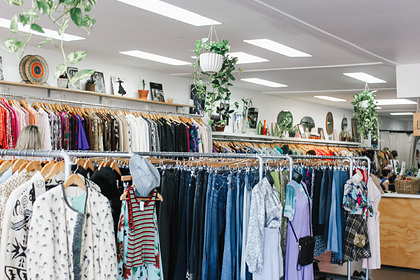HSE: the share of goods from abroad in non-food stores reached 75.8% 
Last year, despite the coronavirus pandemic, in Russia, the share of sales of imported goods in non-food stores began to grow. This is stated in a study by the Higher School of Economics (HSE), which RIA Novosti refers to.
The indicator reached 75.8 percent, which is 2.3 percentage points higher than in 2019. Sales of goods from abroad are increasing in relation to Russian sales, even if logistics and commodity chains are broken.
The study authors excluded food, cars and fuel from the list. The share of imports among the remaining goods has been relatively stable in recent years and significantly depends on the segment. Thus, more than 90 percent of auto parts and about 80-90 percent of shoes and clothing sold are imported. However, there is a slight decrease in clothing – from 86.1 percent in 2017, the share fell to 82 percent.
The situation remains better for Russian manufacturers with sports goods (48 percent of imports), household chemicals and cosmetics (57 percent) and household goods, although in these categories there is a slight increase in imports.
Director of the Center for Economic Expertise of the Institute of State and Municipal Administration of the Higher School of Economics, Marsel Salikhov, noted that large volumes of imports are associated with both limited production opportunities in Russia and the preferences of the citizens themselves. Therefore, even if the authorities try to lower the threshold for duty-free import of goods from abroad, which is currently being discussed, the structure of retail trade will not change, but the consumer will have to pay more.
Earlier it became known that the subcommittee on tariff regulation supported the proposal of the Ministry of Agriculture of Russia on duty-free import of pork and beef from abroad from January 1, 2022, in order to stop the rise in prices. The quota for the first product will be valid for six months, for the second – for a year.